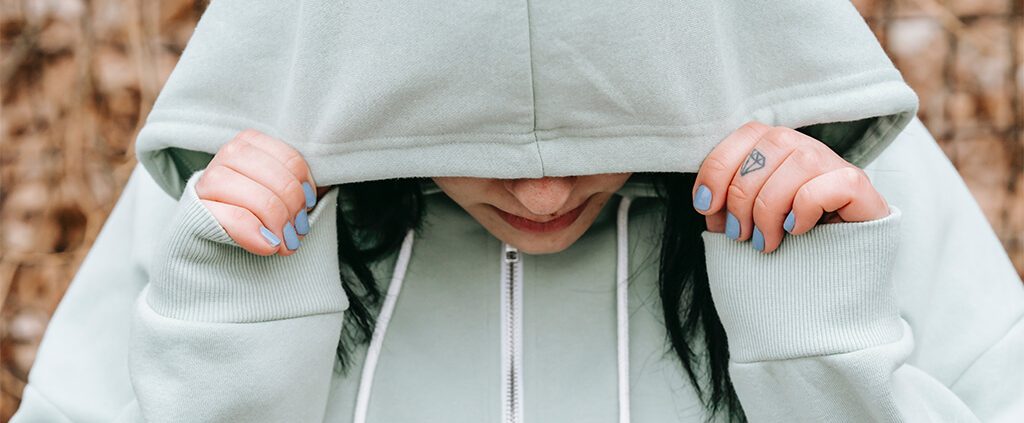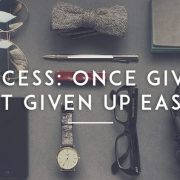How Can I Be Happy if I’m Not Good-Looking?
Written by Jasmine Ong, New Zealand
When Crazy Rich Asians was released, many applauded the movie for being the first Hollywood film to cast Asian actors and showcase the ‘Asian’ culture. What stood out to me though was that aside from being crazy rich, the characters were also extremely good looking, which further perpetuates the belief that physical attractiveness begets success in life.
In a 1994 article titled “Beauty and the Labor Market” by Daniel Hamermesh and Jeff Biddle, findings showed that employees perceived by their employers to be physically attractive earned 10-15% more than their peers. Aside from employment, another research paper by Alan Feingold titled, “Good-Looking People Are Not What We Think” found that better looks are also positively correlated with having more friends and greater popularity with the opposite sex. In a 2016 study of 120,000 individuals in the UK, the authors found that men who were shorter and women who were heavier (mainly due to their genetics) were likely to earn less than their taller and thinner counterparts.
I didn’t need these studies to tell me what I could readily observe in my daily life—but the findings reinforced my notion that generally speaking, good-looking people seem to have it easier. Everybody wants to be their friend; they ooze confidence and look at ease with life; they’re always #blessed in their Instagram posts. I’m not talking about celebrities or influencers; these are regular people—classmates, fellow church goers, neighbours—who seem to have received a special privilege thanks to a genetic lottery.
I’ve also seen how people can be locked out of employment opportunities and social circles because of the way they look. I recall two classmates commiserating about their attempts to find jobs back in their home countries. Despite flawless academic records and fluency in multiple languages, they were unsuccessful in getting entry-level jobs due to their weight. The air of resignation around these girls was heartbreaking, as though they’ve come to accept it as their lot in life. Another friend got a scolding from her relatives, who insisted that her singleness was a result of her refusing to diet and lose weight.
My Battle with My Body
In my case, my teenage years and early twenties were plagued with insecurities about my physical appearance. There were my large and prominent ears, which have made me the subject of ridicule that was often disguised as “light-hearted fun” but still cut deep. I also have a larger body compared to most Asian females, a fact that was repeatedly pointed out by classmates, relatives, and even strangers.
My self-esteem took quite a beating from all of this. I would spend hours looking at the apple-shaped mirror on my wall, critiquing my face and body. I begged my dad to allow me to get my ears pinned back and nose surgically sharpened, reasoning that this would increase my confidence and make me truly happy. Even though my dad strongly dissuaded me from such measures, explaining that surgery is risky, at that point I felt that it was a risk I was willing to take, especially if it meant I could stop hating myself.
When I wasn’t pining for plastic surgery, I was obsessed with losing weight. I repeatedly vowed to eat less, but was trapped in a vicious cycle of failure and self-loathing. Defeated by my failed attempts, I would think: What hope is there for someone like me, with neither great wealth nor remarkable beauty, to attain happiness?
Beauty in the Eyes of God
In due time, the Bible helped me cut through the fairytale flotsam by challenging my misguided beliefs. One particular passage that has stayed with me was what God told Samuel when he was looking to anoint the next king for Israel: “Do not consider his appearance or his height, for I have rejected him. The LORD does not look at the things people look at. People look at the outward appearance, but the LORD looks at the heart” (1 Samuel 16:7). I was intrigued that a God who created all human beings is asserting that appearances do not matter. This verse opened my eyes to the thought that God’s standards are different, that He appoints people to fulfil unique roles in His Kingdom regardless of how they look. I realised that it was society, and not God, who constructed these beauty ideals and biases.
I eventually learned that suffering is common to mankind, and neither riches nor good looks can absolutely guarantee a life devoid of hardship. Just a quick scroll through the news is enough to show me how natural disasters, wars, and disease destroy lives with little regard for their personal status. The recently released documentary ”Framing Britney” and the resulting #FreeBritney movement showed me how even the pop icon’s massive stardom could not shield her from mental health struggles and intense public scrutiny. Even Meghan Markle, the actress-turned-princess, is not spared from public attack and isolation as told in the Oprah interview.
Through all these, I’ve come to accept that surgically changing my face or body would not alter the course of my life. Instead, my life was significantly changed when I chose to accept Christ as my Saviour. From that point, I no longer had to face my sufferings alone, because I had gained a Comforter and a Friend who sees my insecurities and shares my pain. Jesus, who was described as physically unremarkable as a human (Isaiah 53:2) and later became a naked and bloodied mess of torn flesh on the cross—so far from any description of physical beauty—had extended hope and love to me. He is also the one who said, “In this world you will have trouble. But take heart! I have overcome the world.” (John 16:33).
Even as I mourned not having an ideal physique, and am deeply saddened and angered at how pressured we are to live up to these so-called ideals, I comfort myself with Psalm 23, knowing that with God as my Shepherd, I lack nothing. Even if I don’t meet society’s beauty standards, or face discrimination and rejection of any sort, I know that God guides me through each moment and He cares deeply for me.
Surviving a pandemic has put things into perspective for me. These days, I feel happiest when I leave work knowing that I have served my patients and colleagues to the best of my ability. I find deep joy in cultivating this one friendship that has withstood the tests of time and distance. These things remind me that indeed, “The Lord is good to all, He has compassion on all He has made” (Psalm 145:9).












This is very encouraging. God bless your heart, writer.